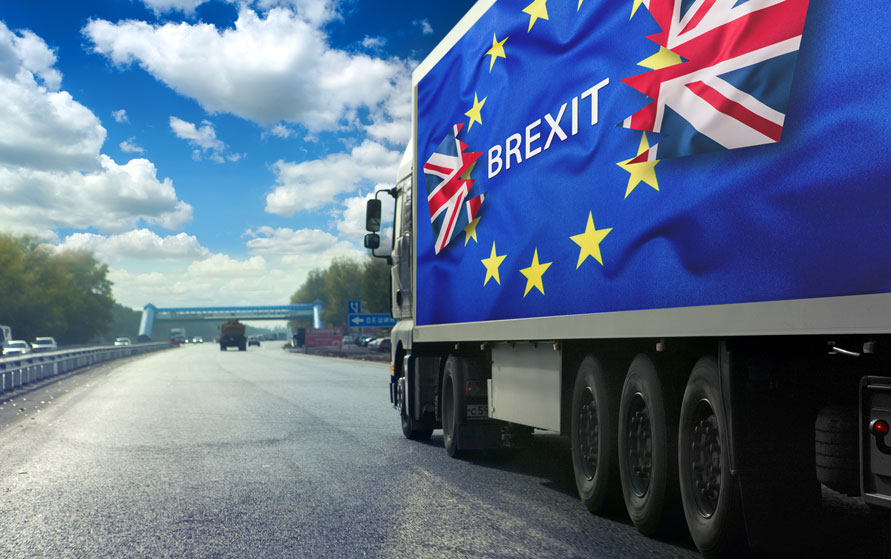Barcelona, February 11, 2019.- One of the ways to deal with uncertainties is with official and contrasted information. We still do not know if the UK will leave the EU officially next March 29, if there will be a delay of several months or even a third opposition. Meanwhile, we present a huge administrative operation on the transport of goods from the UK to Europe, and from Europe to the UK. Here is a summary of the first preparations before an unprecedented panorama in the history of transport:
Roads: Rights for UK private motorists to drive in the EU; rights for UK hauliers to carry goods in the EU; rights for UK bus and coach companies to carry passengers in the EU; and motor insurance and frictionless travel to the Green Card free zone.
Aviation: Air traffic management systems; the air service agreement with the EU; future access to the European Aviation Safety Agency; air service agreements with other countries; the future of security regimes; and UK participation in the EU- wide emissions trading scheme.
Maritime:The Marine Equipment Directive; and future access to the European Maritime Safety Agency
Vehicles: vehicle type approval for manufacturers; and emissions and manufacturers’ CO2 targets
Rail: ongoing recognition of documentation of operators and drivers to support continuation of cross-border rail services.
Cross-Cutting: funding for projects in the Connecting Europe Facility, an EU-funding instrument that targets infrastructure investment; Operation Stack, the plans to manage traffic congestion on the M20 motorway; and transport infrastructure at the border.
Brexit will not impede the right of British shipping companies to carry goods to or from EU ports. Being part of the EU offers UK companies access to a single European market, with no taxes or duties payable on goods moving across internal EU borders, and the benefit of legislation intended to promote the single market, such as the right of EU member states to offer maritime cabotage services (i.e. transport services) across the EU (pursuant to Council Regulation (EEC) No 3577/92). Given the UK Government’s stated policy on the single market and the customs union, it is unlikely that the UK will receive the benefit of this harmonising legislation after the UK has left the EU. This would mean that, whilst British shipping companies could of course still trade within the EU, some aspects of this trade might not be as straightforward post-Brexit. For example, there are likely to be taxes and duties payable on goods moving between the EU and the UK, which may affect trade. It also seems highly unlikely that any form of maritime cabotage rights within the EU would be available to UK companies, which could have an impact on shipping companies which operate in these areas.
Traffic jams and rail bottlenecks are costing the country’s freight firms and ports upwards of £500m every year, while there is an urgent need for a “freight-first approach” to ensure a post-Brexit UK can continue to trade and transport goods easily, according to a new report. Research commissioned by the UK Major Ports Group congestion has estimated traffic on key routes in the country obstructs the UK economy – amounting to 50,000 HGV hours wasted every day and three million tonnes of rail freight restricted annually. The study claims that congestion could be eased by prioritising improvements on just 2.4% of England, Wales and Scotland’s road network and seven major railways junctions.
The report, which was developed by specialist research company MDS Transmodal, found that a total of £14.2bnbn could be unlocked over a 60-year period by taking a number of approaches. These include:
- Ensuring that freight has a higher priority in UK transport planning and funding allocations
- Establishing key capacity constraints on a cross transport mode basis
- Building in the benefits of trade through freight on a consistent basis in project appraisals
- Develop the business cases for investment in key bottlenecks taking into account the benefits and opportunities across transport modes.
Tim Morris, of the UK Major Ports Group, said a new “freight first” approach was needed to ensure that Britain can live up to its true potential. “We have long suspected the significant impact that congestion in our freight network has on UK productivity, but this report exposes the major extent of this,” he added. “And the potential identified is just in terms of freight industry value – the value to manufacturers, retailers and other industries for their own businesses will add substantial to this benefit. Leaking money because of avoidable congestion is an own goal. As this report shows, some smart, targeted prioritisation can exponentially improve our freight network as this crucial moment for our country.”


[…] Read the first installment of this report […]
LikeLike